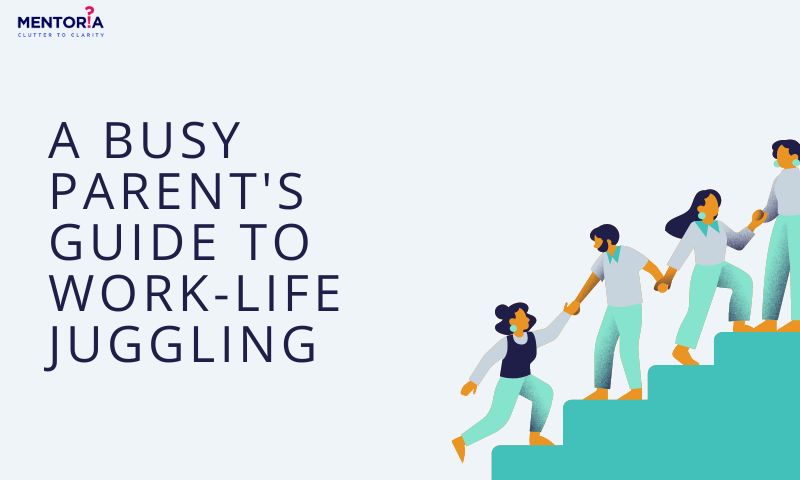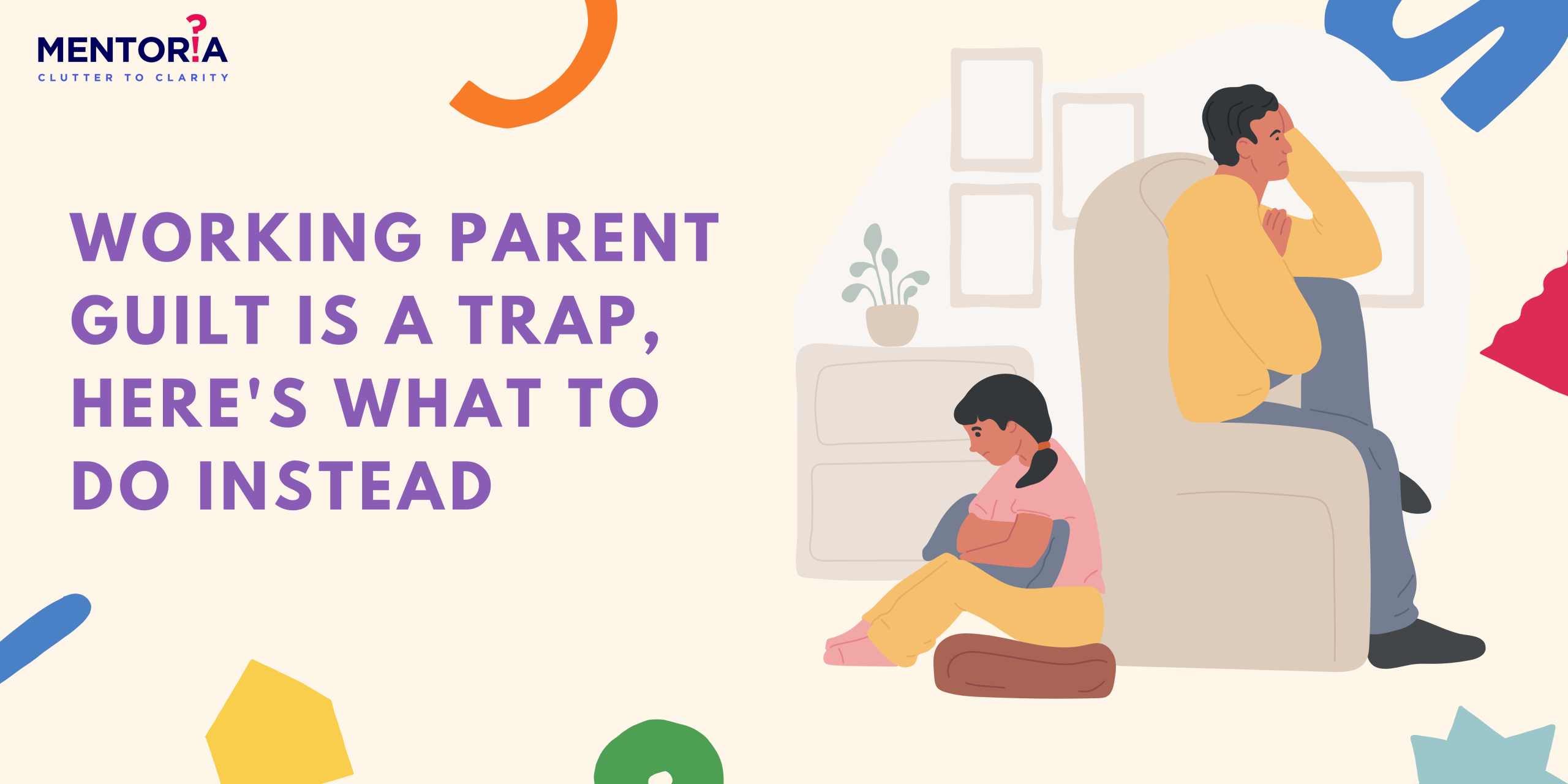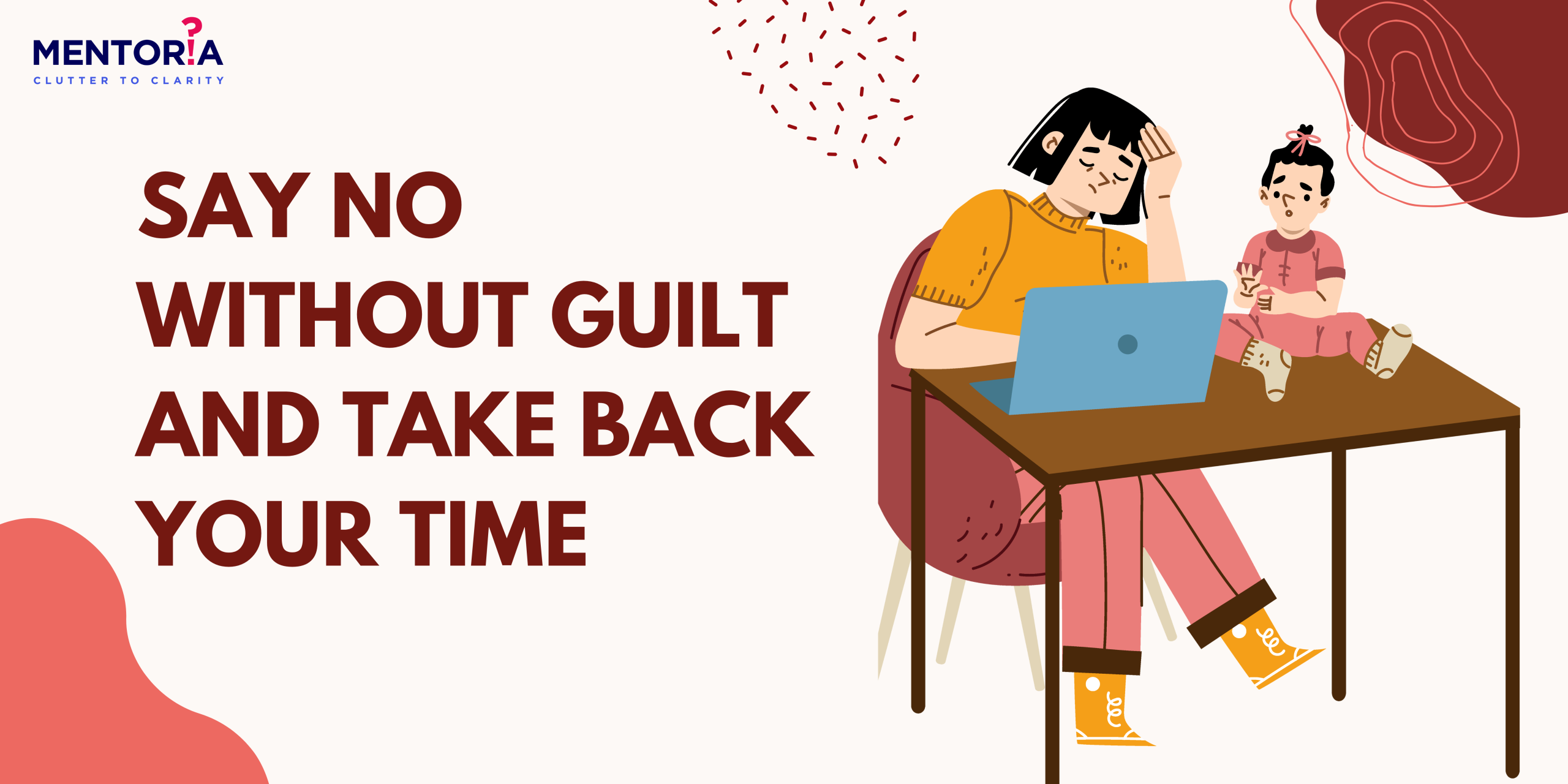A Busy Parent’s Guide To Work-Life Juggling

Balancing work and parenting can feel like performing a high-wire act without a safety net. With endless to-do lists, the pressure to excel at work, and the constant demands of family life, working parents are in a perpetual juggling act. Here’s a fun yet insightful look into the challenges faced by working parents today, and how these hurdles impact their mental health and workplace dynamics.
How Does A Busy Parent Have A Work-Life Balance?
Time Crunch
For working parents, time is always in short supply. Between early morning meetings, school runs, and bedtime routines, fitting everything into a 24-hour day can seem impossible. Parents often find themselves burning the midnight oil, trying to catch up on work after the kids are asleep. The constant race against the clock can lead to significant stress, impacting their overall well-being and job performance. Balancing conference calls and PTA meetings, finding time for a quick workout, and managing household chores can feel like a daily marathon. It’s crucial for parents to find effective time management strategies, prioritise tasks, and seek support when needed to keep the chaos at bay.
Pointers:
- Create a realistic daily schedule and stick to it.
- Prioritise tasks to focus on what truly matters.
- Utilise productivity tools to streamline work and family tasks.
The Guilt Trip
Parenting guilt is a real thing, and working parents are no strangers to it. The emotional tug-of-war between professional responsibilities and family obligations can lead to chronic stress and decreased job satisfaction. The fear of missing out on precious moments with their kids while meeting work deadlines can be overwhelming, often making parents question their choices and priorities. This guilt can be particularly intense during important family events, school performances, or simple daily interactions that parents might miss due to work commitments. It’s essential for parents to communicate openly with their employers and set boundaries to ensure they can be present for their family when it matters most.
Pointers:
- Set boundaries to separate work from family time.
- Communicate openly with employers about flexibility needs.
- Make quality time with family a priority, even if it’s brief.
Work-Life Balance
Finding a balance between work and life is like trying to walk a tightrope. Juggling professional responsibilities with parenting duties can lead to burnout, as the boundaries between work and home become increasingly blurred. Many parents work beyond office hours to catch up, which often encroaches on their personal time, leaving little room for relaxation or self-care. Achieving a work-life balance requires a conscious effort to set boundaries and prioritise activities that promote well-being. This might include negotiating flexible working hours, dedicating specific times for family activities, and ensuring there are moments in the day for personal relaxation and hobbies. It’s about finding harmony and making intentional choices to nurture both career and family life.
Pointers:
- Establish clear boundaries between work and personal life.
- Negotiate flexible working hours or remote work options.
- Schedule regular breaks and downtime to recharge.
Finding Reliable Help For Childcare
Securing reliable and affordable childcare is a challenge for working parents. Whether it’s finding a trustworthy babysitter or a spot in a reputable daycare, the process can be stressful and time-consuming. This challenge often forces parents to juggle multiple responsibilities and make difficult decisions about their children’s care and their own work commitments. Parents must navigate a maze of options, consider costs, and ensure their children are in safe and nurturing environments. The search for quality childcare can be a rollercoaster, with parents often facing long waiting lists and the challenge of coordinating drop-offs and pick-ups around their work schedules.
Pointers:
- Research and visit multiple childcare options before making a decision.
- Consider flexible or part-time care arrangements if full-time is not feasible.
- Explore community resources or parent networks for recommendations.
Parental Stress And Mental Health
The stress of balancing work and parenting doesn’t just impact daily routines, it can also take a toll on mental health. The constant pressure to excel at work while meeting family obligations can cause significant emotional strain, making it crucial for parents to seek support and manage stress effectively. Parental stress can manifest in various ways, including anxiety, depression, and burnout. It’s important for parents to recognise the signs of stress and take proactive steps to address their mental health needs. This might include practising stress-relief techniques like meditation or yoga, seeking professional help if necessary, and maintaining a support network of friends and family to lean on during tough times.
Pointers:
- Practice stress-relief techniques like meditation or yoga.
- Seek professional help if experiencing chronic stress or mental health issues.
- Prioritise self-care and maintain a support network of friends and family.
Impact On Organisations
Parental stress and burnout don’t just affect individuals, they ripple through organisations, impacting overall productivity and work dynamics. Stress can lead to higher rates of absenteeism as parents take time off to manage family responsibilities or recover from burnout. Employees may show up to work but be less engaged or productive due to stress and fatigue, known as presenteeism. Persistent stress affects concentration and efficiency, reducing overall work performance. High levels of stress and burnout can lead to higher employee turnover, as parents may seek more flexible or supportive work environments. The cumulative effect of these issues can diminish organisational effectiveness and employee morale, making it crucial for companies to address the needs of working parents.
Pointers:
- Implement family-friendly policies and flexible work arrangements.
- Provide access to mental health resources and support programmes.
- Foster a supportive work culture that values work-life balance.
Access To Mental Health Resources And Support
Access to mental health resources is crucial for working parents navigating the stress of balancing work and family life. Despite the increasing awareness, many parents still struggle to find adequate support. Organisations and institutions are beginning to offer mental health programmes, but availability and accessibility can vary. Ensuring that parents have access to counselling, therapy, and stress management resources can make a significant difference in their overall well-being and job satisfaction. Parents should advocate for mental health programmes within their organisations and explore external resources such as counselling services or support groups to find the help they need.
Pointers:
- Advocate for mental health programmes and support within your organisation.
- Explore external resources such as counselling services or support groups.
- Stay informed about mental health benefits and services available to you.
Stigma About Mental Health-Breaking The Silence
The stigma surrounding mental health can prevent working parents from seeking the help they need. Despite growing awareness, many still feel embarrassed or ashamed to discuss mental health issues openly. This stigma can exacerbate stress and hinder individuals from accessing necessary support, impacting their overall well-being and job performance. Breaking down these barriers and fostering a more open dialogue about mental health is essential for creating supportive environments for working parents. Encouraging supportive policies and practices, promoting open conversations about mental health, and educating oneself and others about the importance of mental health can help reduce stigma and create a more inclusive workplace.
Pointers:
- Promote open conversations about mental health in the workplace.
- Encourage supportive policies and practices to reduce stigma.
- Educate yourself and others about the importance of mental health and support.
Finding Balance
Being a working parent is a demanding role that requires juggling numerous responsibilities while maintaining personal and professional well-being. The challenges are real, but understanding them and seeking support can make a significant difference. From tackling time crunches and childcare dilemmas to addressing mental health and organisational impacts, there are ways to go about this with a bit of humour and resilience.
With supportive workplaces, access to mental health resources, and a commitment to breaking the stigma surrounding mental health, working parents can find a better balance.










